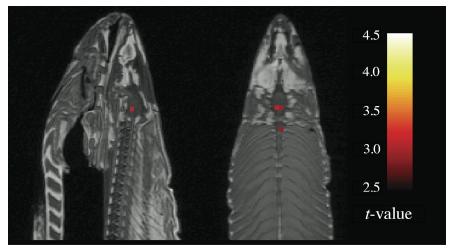Icktheology
A couple of days ago, when I posted about Nicholas Kristof's take on the electrophysiology of politics, I limited my discussion to a 2008 Science article about the relationship between physiological reactions to "threatening images" (like a spider on someone's face) and political attitudes towards "protective policies" (like immigration). Thanks to a couple of enterprising readers, I found a readable .pdf of a 2009 manuscript from the same (University of Nebraska) laboratory, which Kristof also discusses, on the relationship between physiological reactions to "disgusting images" and attitudes towards "sex items" like gay marriage. And as promised, I have a bit more to say after reading it.
Taken together, the two papers are more convincing than either one alone, since the combined results call into question the idea that the measured physiological differences might simply be due to the greater uneasiness of (more conservative) townies being hooked up to electrodes in a university laboratory, compared to (more liberal) university faculty, students, and staff. But the second paper confirms some of the concerns that I had about the size of the effects in the first paper. And it also shows that I was off base when I wrote that "This is not a case of egregious journalistic misunderstanding or over-interpretation". In particular, Kristof doesn't just exaggerate, he directly contradicts the 2009 paper's findings when he writes that
Liberals released only slightly more moisture in reaction to disgusting images than to photos of fruit. But conservatives’ glands went into overdrive.
Read the rest of this entry »
